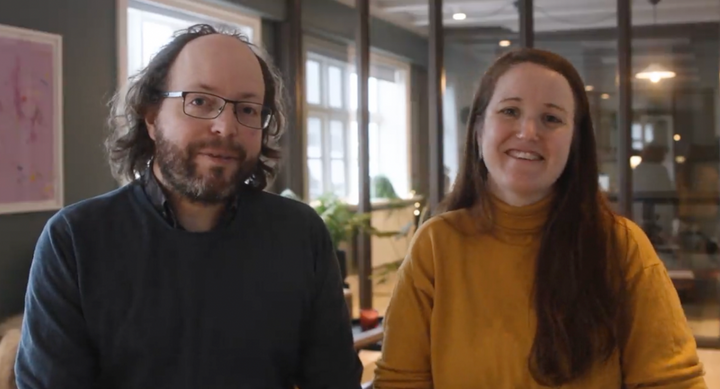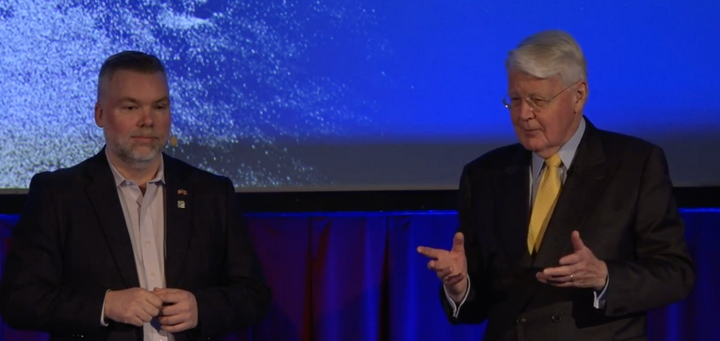Why Game Development could be Iceland's next Breakout Industry

Last week was an interesting one for the game industry in Iceland.
Teatime Games – founded by QuizUp’s cored leadership team – released their most successful game to date, Trivia Royale. The game got featured in the U.S. App Store very close to the top (and those who know mobile game development know the value of that) and is currently at the #2 spot in Trivia. The new game, while obviously building on experience from QuizUp, makes the main thing that QuizUp didn’t succeed at – monetization – a first class citizen.
From TechCrunch:
The initial failure of QuizUp was an inability to monetize. TeaTime was built to avoid making that same mistake twice. The existence of avatars offers a built-in monetization strategy as users look to customize and build out their avatars.
Fridriksson was also extremely averse to mobile advertising within games while he was running QuizUp, and has made his peace with some advertising with the launch of Trivia Royale. When a user wins and is rewarded with points, the user can double those points by watching an ad.Source: Techcrunch
This Friday, game development company 1939 Games hosted a launch party, as they’ve officially released their first game – KARDS. The digital collectible card game, set in World War 2, was in pre-release for some time in Steam, and has already garnered more than $1.1 million dollars in revenue.
These two promising releases underpin a broader theme, supported by good investment in gaming – most recently with a roughly $8m investment into Mainframe Industries, led by a16z – and a growing local support system around the gaming industry.
Last week, the Icelandic League of Legends (LoL) league just got approved as an official part of the global competitive landscape in LoL making it possible for Icelandic esports teams to qualify for global events through local competitions. At the same time, Game Makers Iceland, has become an effective organiser of events and community in the game development community, counting several hundred active participants.
Read more: 100bn ISK over ten years: State of the Icelandic Game Industry – a new comprehensive report
These indicators: delivery of quality games, investment from successful foreign investors, and a growing local ecosystem of game developers and game enthusiasts that help each other, are in my view indicators of a seedling ecosystem, that could – given the right environment, success and support – become a cluster in its own right.
Clusters and Gaming
When I say “industry”, what I’m more concretely referring to is a cluster. And when I say cluster, I’m not referencing a government project or a coworking space, but Michael E. Porter’s concept of a cluster from the 90’s (warning: academic business speak incoming):
Clusters are geographic concentrations of interconnected companies and institutions in a particular field. Clusters encompass an array of linked industries and other entities important to competition. They include, for example, suppliers of specialized inputs such as components, machinery, and services, and providers of specialized infrastructure.
Clusters also often extend downstream to channels and customers and laterally to manufacturers of complementary products and to companies in industries related by skills, technologies, or common inputs. Finally, many clusters include governmental and other institutions—such as universities, standards-setting agencies, think tanks, vocational training providers, and trade associations—that provide specialized training, education, information, research, and technical support. (source)Source: Harvard Business Review
In a global, interconnected industry like gaming, a cluster requires several things. Access to capital. Talented individuals. Connections to publishers and other types of business infrastructure. And just like other types of startup-related industries, game development benefits greatly from the recycling of talent.
Teatime was founded by QuizUp’s founder and leadership team. 1939 Games (maker of Kards) was founded by former CCP veterans. Mainframe Industries was founded by gaming veterans – including founders of Sólfar, and veterans from CCP and NextGames to name a few.
This found > build > succeed/fail > found again cycle most definitely influences the access to capital, access to talented individuals and connections to the broader gaming infrastructure, and the possibility of Icelandic cultivating that further into an actual industry – with more players than only CCP Games – is, in my opinion, a real possibility.
How do we get there?
The most important thing for the game industry right now is the success of the fledgling game startups, like 1939 Games, Teatime Games, Solid Clouds, Aldin, Myrkur and more. But there’s ways we could assist.
Whether that is through the targeted funding of early-stage game companies, through short, medium or long term grants for game development, or an organised approach to leveraging the (relative to size) massive amount of Icelandic talent participating in the global gaming industry.
A quick reminder: the founder of Unity, arguably one of the most important tech underpinnings of modern game development, is Icelandic Davíð Helgason. Alli Óttarsson – ex-Riot and CCP recently became a venture partner at Makers Fund, one of the most interesting VC’s in gaming; we have exciting gaming studios founded by Icelanders outside of Iceland, like Klang Games in Berlin and Lockwood Publishing in the UK. We have talented executives like Lína at Bonfire Studios and Beta at Dice. And we should learn from Israel and other smaller nations on how to recruit our diaspora of talent around the world to support a broader vision, but for that to happen there needs to be a broader vision to recruit people to support.
The opportunity is there. It’s up to the startups to deliver successes. It’s up to the industry to collaborate and help each other and build out the connections needed. It’s up to the government to decide whether this is a good opportunity, and how to help that opportunity, to align both funding and supportive resources to this goal.
What do you think? Is Icelandic gaming an opportunity? And more importantly, should we (and the government) do something specific about it?
Do you like Northstack?
Our coverage is made possible by the support of people who like you, through small monthly donations. Supporting Northstack will help us keep up the discussion, news, and analysis of Icelandic startups, tech, and venture capital.




